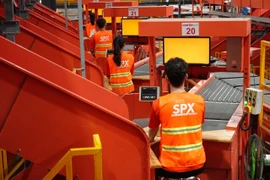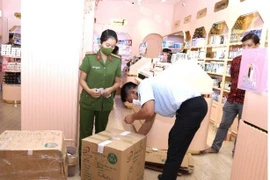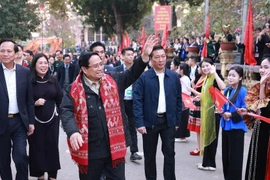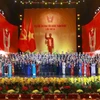Hanoi (VNA) - The Ministry of Industry and Trade (MoIT) has officially issued Decision No. 1568/QD-BCT, approving the master plan for national e-commerce development for the 2026–2030 period.
The plan positions e-commerce as a pioneering sector of the digital economy, playing a key role in transforming the country’s growth model, boosting competitiveness, and promoting sustainable development.
It is closely aligned with national strategic initiatives, including those on digital transformation, digital economy and digital society, and sector-specific programmes led by the MoIT. The overarching aim is to optimise the entire value chain from production to consumption through advanced technological solutions, while ensuring a balance between economic progress, social equity, and environmental protection.
A notable feature of the plan is the emphasis on developing a unified and efficient e-commerce ecosystem across the country. This includes efforts to strengthen regional and international linkages, ensuring that resources are mobilised and utilised effectively.
The plan also highlights the importance of coordinated action by political bodies and local authorities.
One of the core objectives is to enhance the value and global competitiveness of Vietnam’s e-commerce industry, securing its position among the world’s fastest-growing digital economies.
In addition, the plan sets out a number of priorities for expanding the online market for Vietnamese products both domestically and internationally. It seeks to close the development gap between urban and rural areas and to promote a shift toward a greener, circular e-commerce model that contributes to a fair and sustainable society.
The government is targeting an increase in the proportion of adults shopping online to 70%. It also aims to boost the annual growth rate of e-commerce retail sales to between 20% and 30%, with the sector accounting for 20% of the country’s total retail turnover. Furthermore, efforts will be made to reduce the proportion of websites violating consumer rights to between 5-10%.
In terms of enterprise development, the plan outlines a series of targets. By 2030, 70% of businesses in Vietnam are expected to adopt e-commerce in their operations. All commercial transactions are to be accompanied by electronic invoices, and 80 % of payment transactions are to be conducted without the use of cash. The government also expects that 60% of small and medium-sized enterprises (SMEs) will be operating on e-commerce platforms.
Regional equality in e-commerce development is also a priority. The plan seeks to ensure that at least half of all business-to-consumer (B2C) transactions take place outside of Hanoi and Ho Chi Minh City. In addition, it aims for 60% of communes and equivalent local administrative units to have online sellers. It also encourages leveraging the unique advantages of different regions, such as raw materials, production capabilities, logistics networks, and local talent, to promote regionally integrated e-commerce systems.
Sustainability forms a cornerstone of the strategy, with specific environmental targets. The plan sets a goal to reduce the use of plastic packaging to no more than 45 % and to increase the share of recycled packaging to 50 %. It also aims for at least 40 % of e-commerce logistics businesses to use clean energy in their operations. Additionally, 50 % of enterprises will be required to adopt green packaging standards.
Human resources development is also a vital component of the strategy. The Government aims for 60% of higher education and vocational training institutions to offer programmes related to e-commerce, along with 1 million participants across various training initiatives.
To deliver on these ambitions, the master plan outlines six focus areas - developing and refining regulatory frameworks and market policies for e-commerce; strengthening digital, logistics, and cashless payment systems to support sustainable growth; building digital platforms for both state management and a green, resilient e-commerce market; leveraging local advantages in resources and talent for integrated e-commerce ecosystems; improving e-commerce adoption among businesses, households, and individuals; and expanding global partnerships to adopt advanced standards, access new technologies, and enter international markets./.
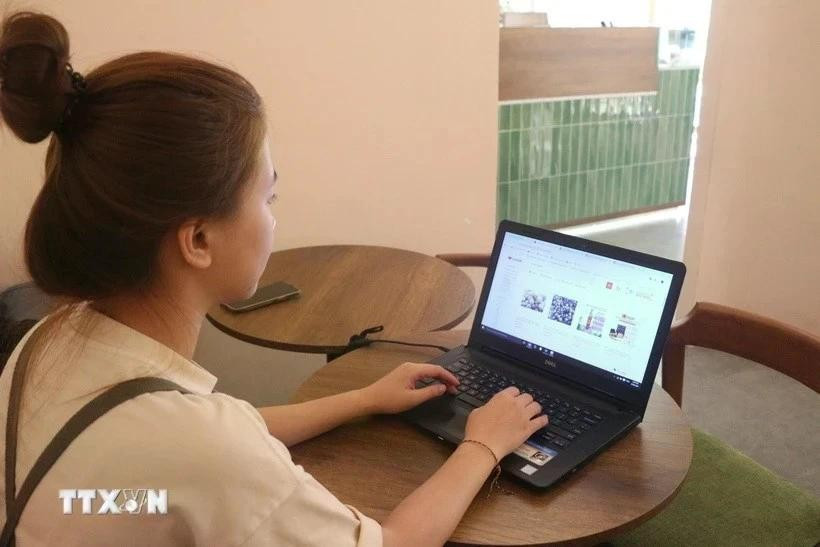
See more
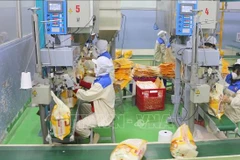
Vietnam exports over 8 million tonnes of rice, earning 4.1 billion USD in 2025
Vietnam exported more than 8.06 million tonnes of rice in 2025, earning over 4.1 billion USD.
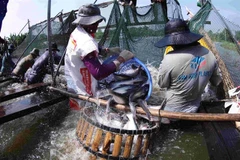
VASEP forecasts pangasius exports to hit 2.3 billion USD this year
VASEP forecasts that pangasius export turnover could reach around 2.3 billion USD in 2026, supported by tightening global whitefish supplies and improving demand in several key markets.
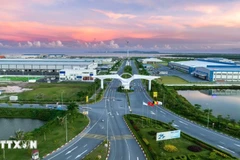
Hai Phong city targets 4.3 billion USD in FDI in 2026
Hai Phong’s investment appeal is underpinned by a rapidly expanding development space, including the Southern Coastal Economic Zone covering more than 20,000 hectares, a planned free trade zone, deep-water ports at Lach Huyen, and 12 industrial parks newly established in 2025.
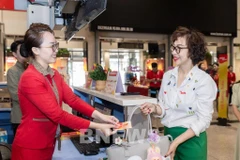
Vietjet shifts domestic check-in at Tan Son Nhat from January 13
During the recent New Year 2026 holiday peak, Vietjet added 380 flights, equivalent to nearly 78,000 additional seats, on many key domestic routes linking Hanoi and Ho Chi Minh City with destinations such as Vinh, Thanh Hoa, Hai Phong, Da Nang, Phu Quoc, Nha Trang and Da Lat.

Capital sources expanded for sustainable growth
According to the State Bank of Vietnam (SBV), by the end of November 2025, outstanding green credit was estimated at around 750 trillion VND (28.55 billion USD), with an average growth rate exceeding that of overall credit in the economy.

Traceability emerges as protective shield for Vietnam’s exports
Traceability data are evolving into a critical layer of protection, helping exporters reduce tariff risks, shorten inspection times and strengthen proof of origin, thereby avoiding exclusion from formal distribution networks.
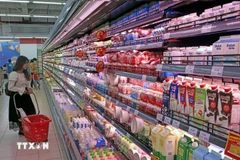
Retail market expands sharply, sustainability challenges persist
According to a report on recently released by the Ministry of Industry and Trade’s Agency for Domestic Market Surveillance and Development, the size of the market reached more than 7 quadrillion VND (about 266 billion USD) in 2025, up around 10% compared with 2024.
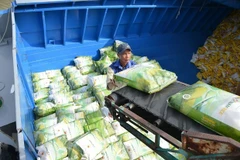
Vietnam eyes Israel as promising rice market under free trade deal
The Vietnam - Israel Free Trade Agreement (VIFTA), which took effect in late 2024, is poised to provide a fresh boost to agricultural exports, with rice at the forefront.

Resolution 79: State economy to lead growth
Resolution 79 is described as a “clear action declaration” by the Politburo, saying the state economy is not only responsible for maintaining macroeconomic stability, but must also become the force leading a new growth model that is green and sustainable.

Vietnam leverages export advantages within RCEP region
In 2025, seafood exports to China alone exceeded 2.2 billion USD, up about 33% compared to 2024. Shipments to Japan fetched nearly 1.7 billion USD, a year-on-year increase of 14.6%, while those to the Republic of Korea and Australia grew by 9.6% and 3.2%, respectively.
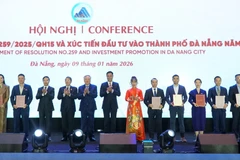
Da Nang continues targeted investment promotion approaches
According to Chairman of the Da Nang People’s Committee Pham Duc An, the city prioritises building sustainable economic ecosystems and focuses on key breakthrough sectors with strong spillover effects, including high technology and digital transformation, logistics, urban infrastructure, finance, processing and manufacturing industries, high-tech agriculture, and the pharmaceutical and medicinal herb industry.
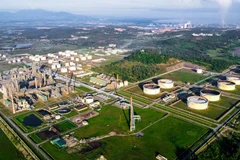
📝OP-ED: Resolution 79 – Launchpad for national aspirations
Resolution 79 is not only about SOEs. At a deeper level, it is about how Vietnam reorganises its development drivers in a world that is changing at breakneck speed.
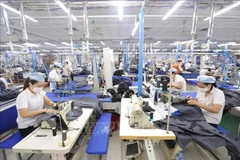
UOB raises Vietnam’s 2026 GDP growth forecast to 7.5%
In 2025, Vietnam’s GDP grew by 8%, beating UOB’s forecast of 7.7% but still falling short of the Government’s target of 8.3–8.5%, which would have needed an extraordinary boost in the final quarter.
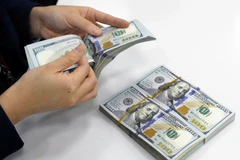
Reference exchange rate up 4 VND on January 10
With the current trading band of +/- 5%, the ceiling rate applicable for commercial banks during the day is 26,388 VND/USD, and the floor rate 23,874 VND/USD.
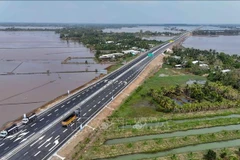
Infrastructure key to unlocking tourism’s role in double-digit growth target
With transport links running smoothly, urban infrastructure upgraded and digital platforms built out in a more systematic way, tourism would move beyond a purely consumption-driven sector to become a deeper, more durable engine of growth.

Hyundai sales in Vietnam rise almost 23% in December
In 2025, sales reached 53,229 vehicles across the market, a result considered a testament to the efforts by TC Group, Hyundai Thanh Cong, and the entire Hyundai dealership network nationwide amidst a volatile market.
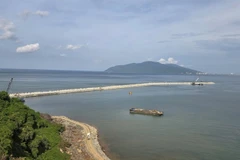
Da Nang approves plan key infrastructure developers at FTZ
The Da Nang FTZ is expected to contribute 17.9% to the city’s gross regional domestic product and create 127,000 jobs by 2040, with total investment needs estimated at 40 trillion VND (1.6 billion USD).
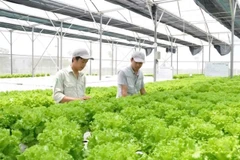
HCM City accelerates shift toward ecological urban agriculture
The city’s agricultural sector is undergoing a strong transformation, restructuring toward higher value-added and sustainable development. In recent years, the sector has maintained steady growth, with agricultural, forestry and fisheries output rising by an estimated 2.5% annually.
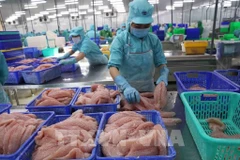
Vietnam records biggest trade surplus with Netherlands among European partners
Vietnam’s exports to the Netherlands totalled 13.5 billion USD last year, up 3.7% compared to 2024, while imports stood at 825 million USD, rising 5.2%.
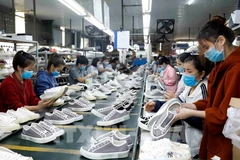
Footwear-leather industry seeks new drivers to sustain growth
Vietnam currently ranks third globally in footwear production, with around 1.4 billion pairs manufactured annually, behind China and India, and second in exports with approximately 1.3 billion pairs a year.
